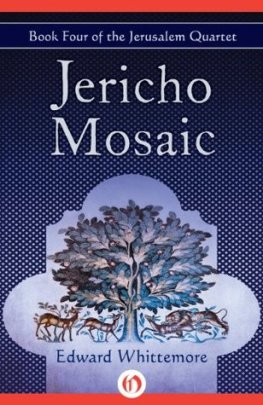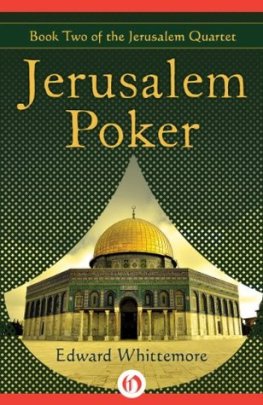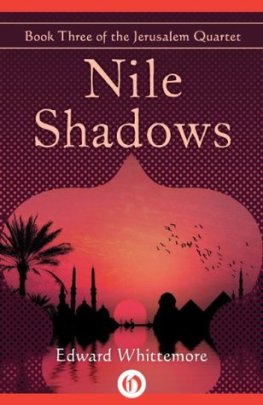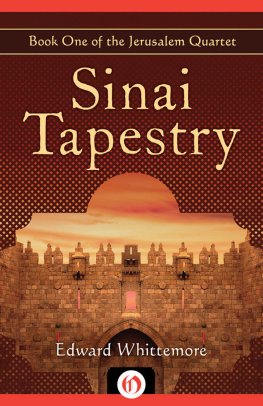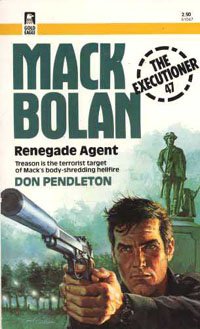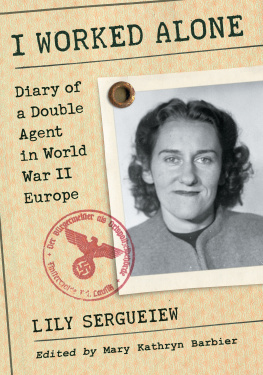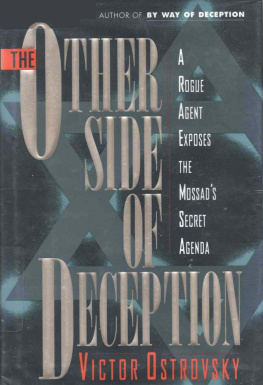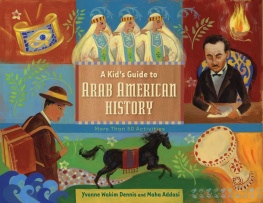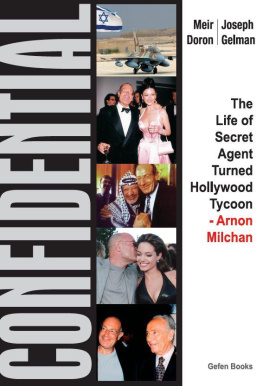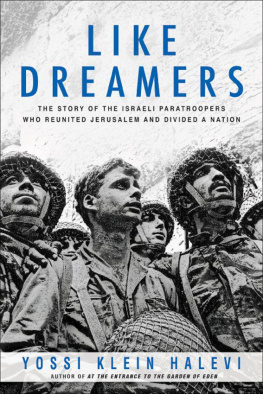Edward Whittemore
Jericho Mosaic
For Larry and Sarah Whittemore
and Tom and Lois Wallace
ONE
Jerusalem in the early twentieth century was a vibrant little city only newly awakened from medieval obscurity by the coming of the British at the end of the First World War a dream from antiquity suddenly stirring to life after four hundred years of slumber under the stupefying decadence of the Ottoman Empire. With their penchant for order and proper hygiene, the British briskly built hydraulic works and piped fresh water up to Jerusalem, but many people in the walled Old City still drank from the cisterns of the past, those underground reservoirs from other ages which never saw the light of day. For Jerusalem was a place where many eras still crowded together, and where no event from history was too remote for a morning's gossip, since the very ruins of that event might well be providing shade for the day's transactions of commerce and hope.
Stately Nubian doormen reigned in splendid solemnity at the entrances of hotels. Wily merchants hovered in dim shops fingering the purses on their sleek bellies, waiting with patience for fate and guides to bring them their quota of fools who would be as deaf as they were to the cries of beggars and holy men.
Preceded by a shabbily uniformed kavass clearing a way with his thumping staff, Turkish grandees in red tarbooshes swayed by to assignations in flowering courtyards, already glassy-eyed from a nargileh or two of hashish at breakfast. Fierce bedouin and European travelers haggled side by side over bunches of garlic and sacks of dates, and over ancient coins bearing pale green profiles of Alexander the Great or some heavy-nosed emperor of Rome or Byzantium.
Black-robed monks of a dozen nationalities swirled down alleys in peaked headdresses and round and flat hats, disappearing along arcane routes devised in the Middle Ages, the Red and White monks of the Russian church looking particularly frenzied as they delved ever deeper into the plots and counterplots of their twentieth-century revolution at home.
The poor and the blind wandered among delirious lost pilgrims seeking the sites of old. Cripples in carts peered up from the cobblestones as men chanted allegiance to obscure causes or dropped to their knees in an ecstasy of prayer, or shouted out the virtues of the pots and beads and rags they had for sale.
In the Muristan where the Crusader Knights of St. John had been quartered and where the Roman Forum had once stood, stringed orchestras played in front of shops to attract customers. And everywhere in the dark recesses of the bazaars there were reaching and gesturing hands and wild rumors of forgotten magnificence being whispered into eager ears, as Jerusalem seethed again with merchandise and fervor after a drowsy sleep of centuries.
For Tajar as a boy it was a time to run through alleys and over rooftops, to hide in corners and listen to old men recall distant memories and young men dream of new dawns of glory. In the early mornings he wandered down the narrow street called el Wad near the Temple Mount, once a Jebusite donkey path and the oldest road in the Old City. And in the cool of the evenings he tarried beside the Gihon spring, beyond the walls of the city since King David's time but the original source of Jerusalem whose perennial waters first caused a town to take root on the spot, the area around the spring later to become renowned as King Solomon's rose gardens, the sacred place where perfume and incense plants were grown for the king's grand new Temple on the hill above, from seeds first brought to the king and the land by the dusky Queen of Sheba.
And so Tajar wandered back and forth through history. Being holy, Jerusalem was an endless source of myth. There were legends of intriguing mystery, such as the tale that described the original Bible having been miraculously discovered in the nineteenth century buried in a monastery deep in the Sinai, only to be secretly reburied later in Jerusalem out of fear and piety in the cause of faith, because this original Bible had turned out to be a stunningly dangerous document which denied every religious truth ever held by anyone.
And there were stories of fabulous adventure, such as the shadowy accounts of a long-term poker game which had begun in Jerusalem after the First World War and was still in progress in the back room of an antiquities dealer's shop somewhere in the Old City, a game destined to run a dozen years, it was said, its three permanent members a Moslem and a Christian and a Jew, the secret stakes of the game nothing less than control of Jerusalem itself.
Arabs and Jews and Greeks and Armenians and Europeans Tajar learned all their languages and glimpsed all their visions of the Holy City where the patriarch-shepherd Abraham had come four millennia ago to seek the blessing of Melchizedek, mythical priest-king of the ancient Jebusite city of Jerusalem.
Tajar spied out the hidden byways of the bazaars and the dazzling silences of the great sun-washed courtyards with their towers and domes and minarets, endlessly exploring the multitude of worlds around every corner and the multiplicity of ways and tongues and costumes which were the very heart of his ancient walled city. Above all he loved being different people at different moments, imagining secret lives for himself, imagining himself to be all the men whose paths he crossed.
He had a game which he called listening to the stones of Jerusalem. He would stop somewhere and turn his back on the crowds and close his eyes and rest his hands on a weathered stone, a wall or an abutment or arch, and soon he would find himself slipping back in time to some distant era, feeling its life surge around him and hearing its sounds and tasting its smells, so clearly the stones seemed to be whispering to him through his fingertips.
Anna smiled when he described that childhood game to her years later. She smiled and nodded in recognition at those sensations of his from long ago.
So that's where your sensualism began, she said to him, laughing. And it was true that Tajar always took enormous pleasure in textures and tastes and colors. He loved to touch things with his hands, to feel them with his fingers.
Once when he went to make coffee in Anna's house and she waited and waited and too much time had passed, she found him in the kitchen dreamily dipping his hand in and out of the jar of coffee beans, stroking the beans and letting them run through his fingers, oblivious to where he was and what he was supposed to be doing. So perhaps it was as Anna suspected, and his mystical love as a boy for the stones of Jerusalem gave him a vision that guided his entire life.
In any case, Tajar's sensual pleasure in textures and colors and his love of ideas, his delight in multiple ways and languages and especially his boyhood games of pretending, all were to provide him with a very special role in the building of his homeland. The grand rabbi of espionage, Yossi would one day call him, at a meeting of theirs in Geneva. And although Yossi laughed when he made the remark, it was no less true.
Tajar was the first director of the Mossad, its founder, and in fact his exceptional talent for secret worlds was wholly natural to him, a result of having grown up in Jerusalem at a time when all its races and tongues mingled freely, before the strife of later years caused the various communities to withdraw and isolate themselves one from the other.
Tajar had been born in Jerusalem, the son and grandson of rabbis who had also been born in Jerusalem.
From the beginning ideas filled his days and Tajar could never escape them. A desert windstorm of ideas was forever swirling inside his brain and hurling him this way and that, obscuring the sun and revealing its brilliance and tossing up bits of stinging sand, tearing loose the tents of shelter and carrying off certainty and reshaping the hard wounded lines of the Judean hills from one day to the next, a never-ending struggle in his heart for recognition between man and nature, between man and his own nature, between the world and an immutable divine presence which never stopped changing.

